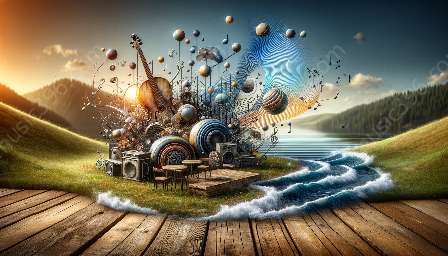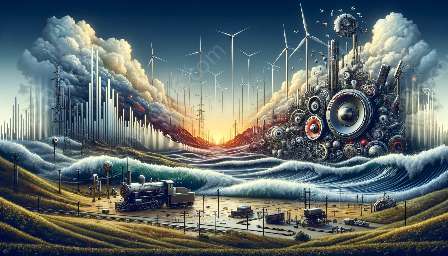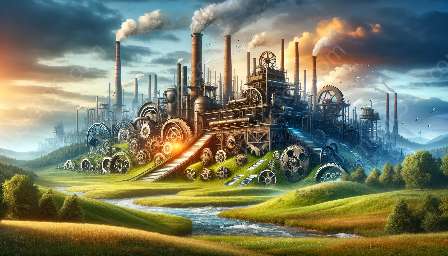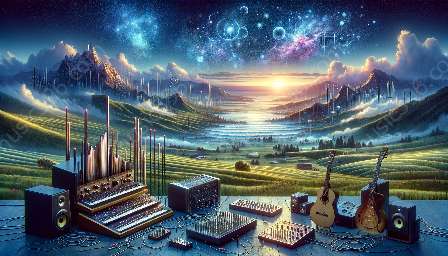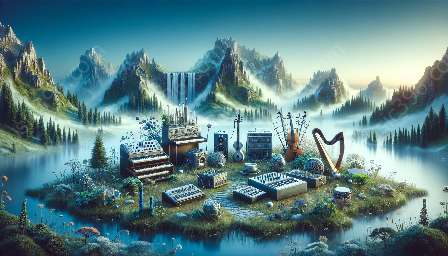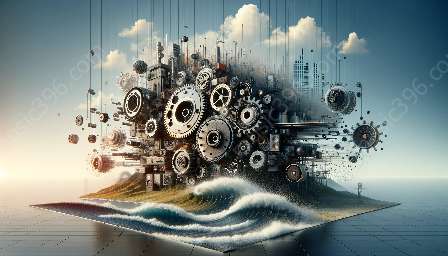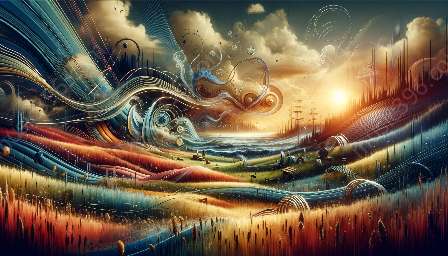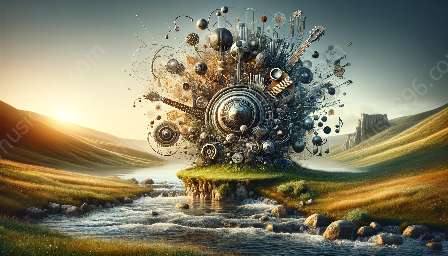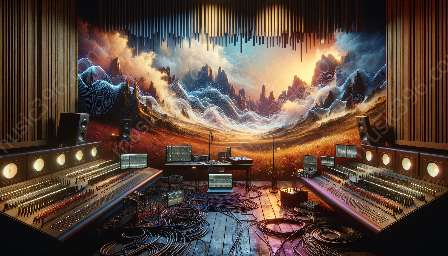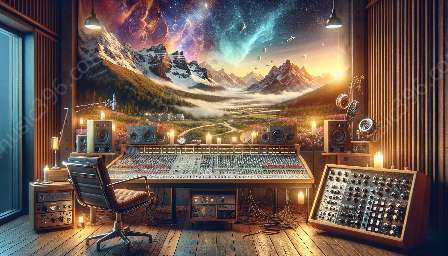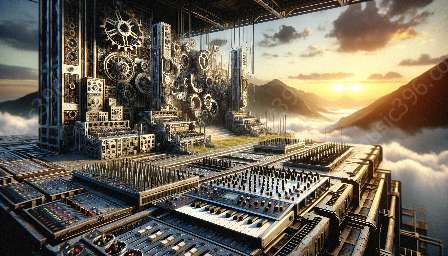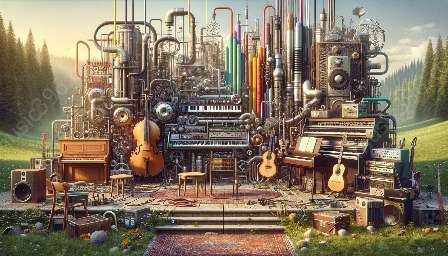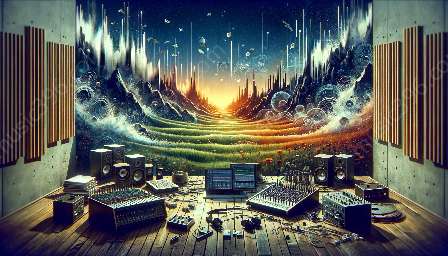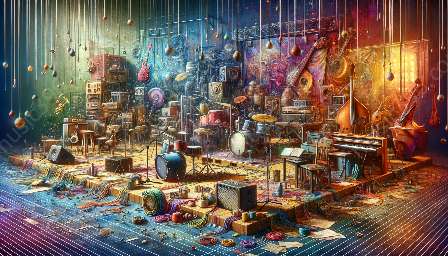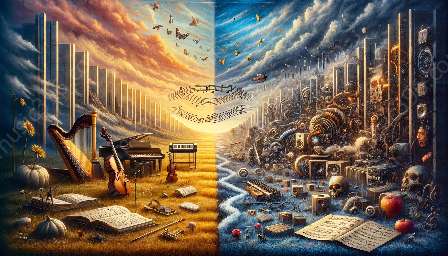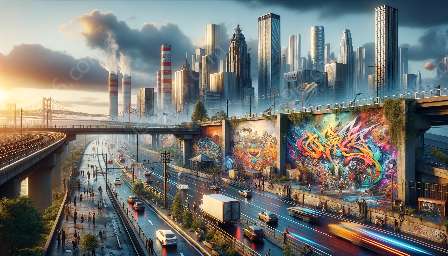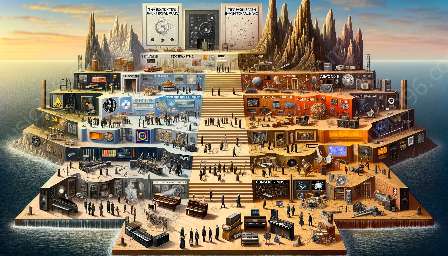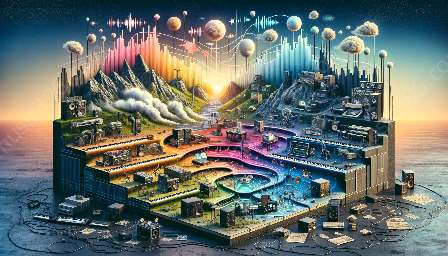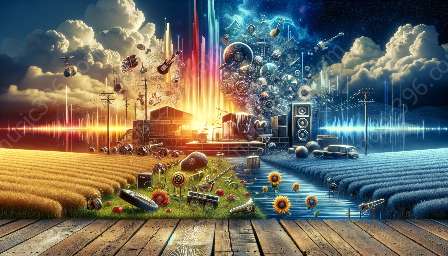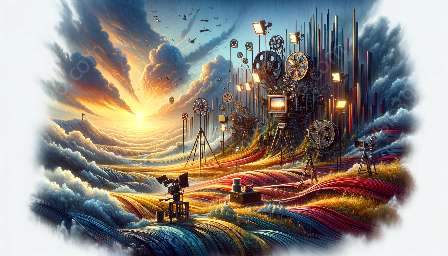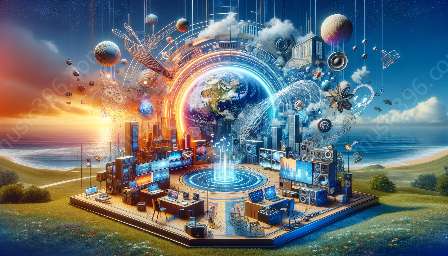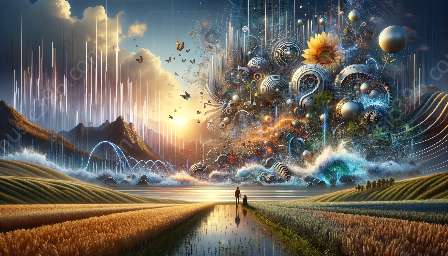Industrial music production relies on a range of key technologies and techniques to achieve its unique sound. From synthesizers and samplers to digital audio workstations, explore the tools and methods that shape the industrial music genre. Learn about influential experimental music artists who have pushed the boundaries of sound and creativity, and delve into the intersection of experimental and industrial music.
Key Technologies in Industrial Music Production
Industrial music is characterized by its heavy use of technology and machinery to create a harsh and aggressive sound. The production of industrial music relies on several key technologies to achieve this distinctive aesthetic.
1. Synthesizers and Drum Machines
Synthesizers and drum machines are fundamental to the creation of industrial music. These electronic instruments allow artists to generate an array of cutting-edge sounds, from distorted basslines to metallic percussive elements.
2. Samplers and Sound Modules
Samplers and sound modules play a crucial role in industrial music production, enabling artists to manipulate and reconfigure existing audio recordings to create new and innovative sonic textures. This sampling technology is central to the industrial music's collage-like approach to sound.
3. Digital Audio Workstations (DAWs)
DAWs are at the core of industrial music production, providing a comprehensive platform for recording, arranging, and mixing tracks. These software-based solutions offer an extensive range of effects and processing tools that are essential for shaping the raw industrial sound into a polished and cohesive composition.
4. Effects Processors
Effects processors such as distortion units, reverbs, and delays are integral to the industrial music production process. These tools allow artists to warp and mangle sounds, adding layers of complexity and intensity to their compositions.
5. Field Recordings and Found Sounds
Industrial music often incorporates field recordings and found sounds, capturing ambient noise and mechanical rhythms from the world around us. These recordings are then processed and integrated into the music, contributing to the gritty and industrial atmosphere of the genre.
Influential Experimental Music Artists
Experimental music has been shaped by pioneering artists who have pushed the boundaries of sound and composition. These influential figures have continually challenged conventional music production techniques and embraced innovative technologies to craft their visionary sonic landscapes.
1. Throbbing Gristle
Throbbing Gristle was a seminal experimental music group that emerged in the late 1970s. The band utilized tape loops, synthesizers, and unconventional recording methods to create unsettling and confrontational soundscapes that would influence the industrial music genre for decades to come.
2. Einstürzende Neubauten
Einstürzende Neubauten, a German experimental music ensemble, gained renown for their use of custom-built instruments and found objects as integral components of their music. Their inventive approach to sound production and performance has cemented their status as pioneers of industrial and experimental music.
3. Coil
Coil, an experimental music collective, produced a diverse body of work that spanned genres and defied categorization. With a penchant for sonic experimentation and an extensive use of synthesizers and electronic processing, Coil significantly contributed to the development of industrial and experimental music.
4. Merzbow
Merzbow, the project of Japanese musician Masami Akita, is synonymous with noise music and extreme sound manipulation. Through the utilization of unconventional sound sources and advanced electronic equipment, Merzbow has exemplified the potential of technology in sculpting challenging and visceral sonic experiences.
5. Pharmakon
Pharmakon, the solo project of Margaret Chardiet, stands as a compelling example of contemporary experimental music that harnesses modern technologies to craft raw and cathartic sonic expressions. Pharmakon's use of synthesis and intense vocal performances reflects the intersection of experimental and industrial music in the digital age.
Exploring Experimental & Industrial Music
The worlds of experimental and industrial music intersect in a realm of sonic innovation and unconventional artistry. Bridging the avant-garde and the industrial, artists continue to explore the potential of technology and technique in shaping the auditory landscapes of the future. Whether through the use of cutting-edge digital tools or the reimagining of traditional instrumentation, the boundaries of experimental and industrial music are continually expanding, reflecting the ever-evolving relationship between art and technology.

